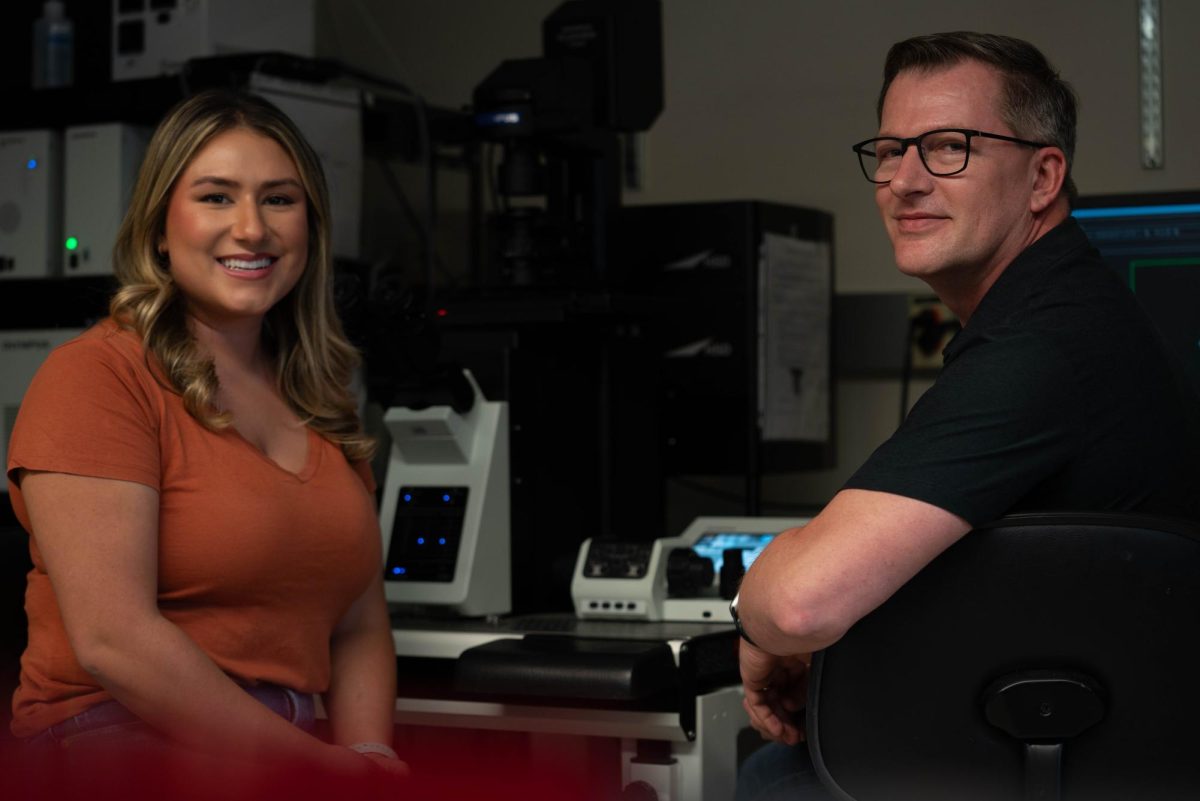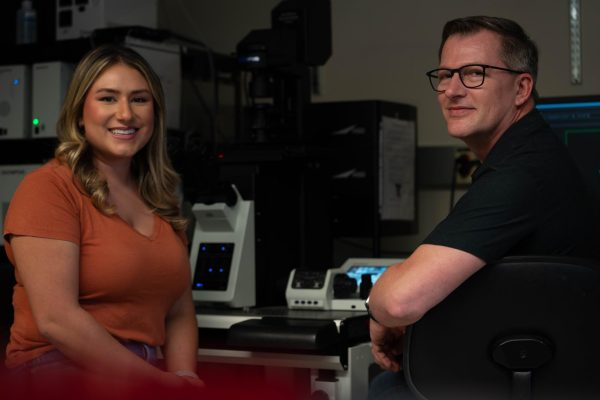A UT lab discovered the function of an enzyme that can potentially target new therapies for breast cancer.
Published on Sept. 21, the research, conducted with research teams at UT Health San Antonio and the University of Oxford, examines the role of the enzyme APOBEC3B in the progression of breast cancer. The lab, led by molecular biosciences professor Kyle Miller, found interest in the enzyme years ago when Miller attended a seminar by Reuben Harris, a UT Health San Antonio professor, who helped lead the collaboration between the three teams.
“This gene, APOBEC3B, is very well studied in many cancers, including breast cancer,” Miller said. “When you look at the DNA sequence in tumors of patients, you see a particular type of mutation, and we can trace that back to this enzyme.”
Miller said the enzyme promotes mutation in about 50% of all cancers. The enzyme targets an R-loop, a complex where single-strand DNA and RNA meet.
The R-loop can have both positive and negative effects, said Anthony Sanchez, a postdoctoral fellow in Miller’s lab.
“These structures can be roadblocks to other things that have to go on in the DNA,” Sanchez said.
He said the R-loop may generate mutations due to the significance and sensitivity of DNA production and replication, which can ultimately drive cancer and other diseases. The introduction of APOBEC3B causes these R-loops to mutate further.
Sanchez said increasing R-loops in cancer cells affected by APOBEC3B would overwhelm their system.
“We hypothesize that targeting APOBEC3B could be a viable cancer treatment strategy because the massive increase in R-loops can cause cell death in the cancer cells,” Sanchez wrote in an email.
Stephanie Gutierrez, a cancer data specialist and breast cancer survivor, said introducing new research and therapies to treat cancer is a source of hope for those currently fighting the disease.
“Some of the smartest minds are working hard on eradicating or catching these cancers even earlier or working (on) the genome to prevent cancer from even starting to begin with,” Gutierrez said. “It’s fascinating.”
Miller and his team are currently working toward translating the research’s discovery into usable therapeutic methods, especially in cases where the disease is resistant to therapy. However, he says it’ll likely take time.
“We’re looking at the role of this gene, not only in mutations but in other pathways, because R-loops (are) not only being mutated, (but) they have biological relevance throughout the cell,” Miller said.
Miller said the continued partnership between the three labs is valuable as the collaborative research advances.
“You need this in science,” Miller said. “We need to express our information and put it out there because people have unique perspectives, and I think this is how this all came together.”





















